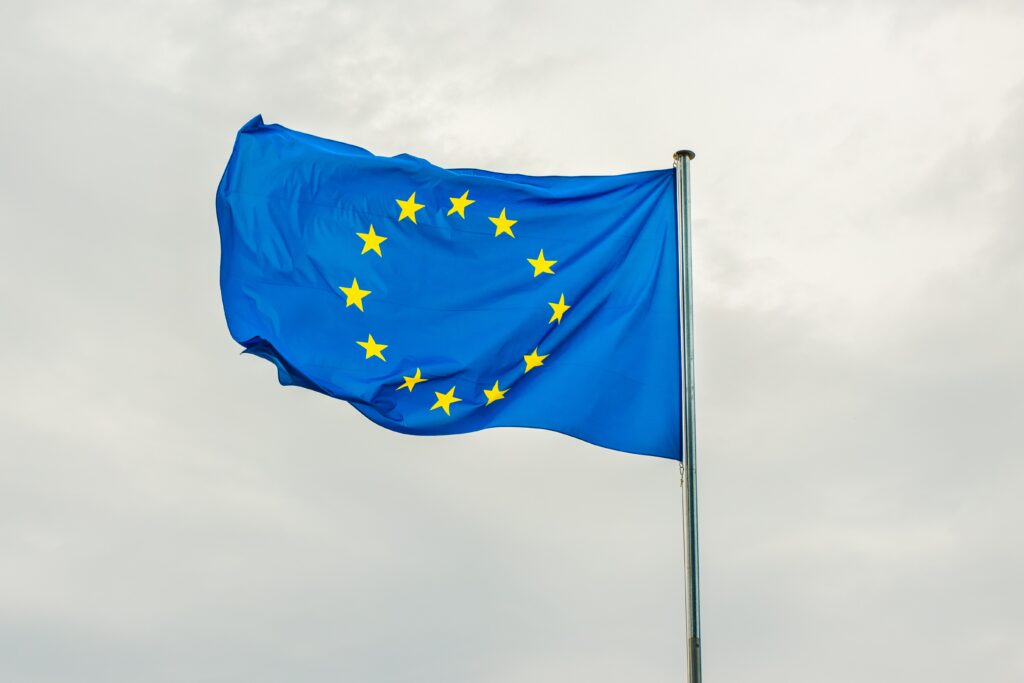5 actions from the EU brands need to anticipate
The EU is stepping up its actions on cleaning up the fashion industry. Multiple proposals have been put forwards in The EU Strategy for Sustainable and Circular Textiles. Here is what brands should know for the future:

Get out of fashion. These were Virginijus Sinkevičius, the EU environment commissioner’s words on fast fashion when talking about the environmental impact of the industry in the EU. His words mark a recent change of tone from the Commission. A tougher approach and lower tolerance towards the fashion industry and its environmental impact. And there is more to come.
As part of its environmental objectives, the EU is increasing efforts to improve the European fashion industry through the “EU Strategy for Sustainable and Circular Textiles.” First communicated in 2022, this holistic strategy aims to tackle the environmental waste problems of the fashion industry. Although the timeline remains unclear for certain actions, some legal changes could be implemented as early as 2024. Today we summarize the legal actions relevant to textile and fashion; here are five upcoming regulations brands need to anticipate from the EU:
"A tougher approach and lower tolerance towards the fashion industry"
EPR
Perhaps the biggest step towards circularity and better waste management is the new proposed Extended Producer Responsibility in the EU. EPR at its core, is a way of making companies responsible for the end-of-life of their products. By introducing a so-called eco-modulation fee on textile products, money can be collected for building necessary recycling and collection infrastructure. It could work as an effective carrot & stick method, giving financial incentives / bonuses to brands that use sustainable materials while penalizing those who don’t.
Banning The Destruction of Unsold & Returned Textiles
Another important upcoming regulation change in the EU is banning the destruction of unsold goods. Around 30% of clothes are never sold, while 1/4 of products sold in e-commerce are returned. Both overstock and returns have been well documented to be destroyed or burned in the fashion industry. If the ban passes, the EU will follow the French AGEC law, the first in the world to ban the destruction of unsold clothes in 2020. Instead of destruction, brands would have to find other ways to manage their overstock, such as resale or donations.
Exporting Clothes To Landfills
The EU is also taking steps to reduce textile exports of unsold goods or used clothing to developing countries. A report recently made the headlines for finding that 37 million tonnes of plastic waste are dumped in Kenya annually, clearly showing the extent of the problem. Apart from destroying the nature in which the clothes are disposed of, the secondhand market from exports also threatens the local garment industry, outcompeting it with low prices. To fight this, the EU has said it will create legal barriers to ensure the union’s textile waste problems are not handed over to developing countries. More specifically, to export to a non-OECD country, that destination country needs to show that they wish to import it and have the capacity to manage it sustainably.
Actions against greenwashing
Greenwashing has more or less become common practice. It’s when brands make misleading or false “green claims” about their sustainability efforts or their product. According to a study from the European Commission, as much as 53.3% of voluntary environmental claims are based on “vague, misleading or unfounded information”. That clearly shows the extent of the problem. To tackle this behavior, the EU is taking action by drafting a new law that would require brands to actually show scientific proof when making such green claims. It would also make it mandatory to fact-check claims through independent third parties. The proposal was submitted on the 23rd of March and has the objective of helping consumers make more informed choices.
Increased Transparency
Similar to greenwashing, transparency and traceability are two other key sustainability topics for the EU. A proposal is being discussed if brands should be required by law to disclose more information about their environmental impact, for example, through the Corporate Social Responsibility Directive, which will make it mandatory for almost 50,000 European companies to publish ESG reports. If such information becomes publicly available, it could force brands to take action on sustainability issues to reduce their impact to mitigate negative press. This could also be achieved, for example, by establishing a credible institution that evaluates brands’ environmental impact in a standardized way. For value chain traceability, the EU is looking into introducing a digital product passport, allowing for more circularity and transparency for the consumer.
Brands need to act
The EU is taking significant steps towards promoting sustainability and circularity in the fashion industry. Through the EU Strategy for Sustainable and Circular Textiles, the EU is implementing legal changes that will affect the entire textile and fashion value chain. Brands must anticipate and comply with these changes, such as the proposed Extended Producer Responsibility and the ban on destroying unsold and returned textile goods. These initiatives and the EU’s actions against greenwashing and increased transparency signal a clear intention to prioritize sustainability in the fashion industry. By doing so, the EU sets an example and encourages brands to adopt more sustainable practices.
FINDS helps brands anticipate legal actions related to EPR and the ban on destroying goods. Our SaaS platform automatically connects brands’ surplus stock with the ideal actor for reselling, recycling, or donations. With better visibility over surplus stock and available clearance options, brands can effectively avoid wasting or burning their unsold goods.
“A tougher approach and lower tolerance towards the fashion industry”
If you’d like to learn
more about FINDS,
let’s chat.
You can contact us here with any questions.
+33 7 69 22 30 58















